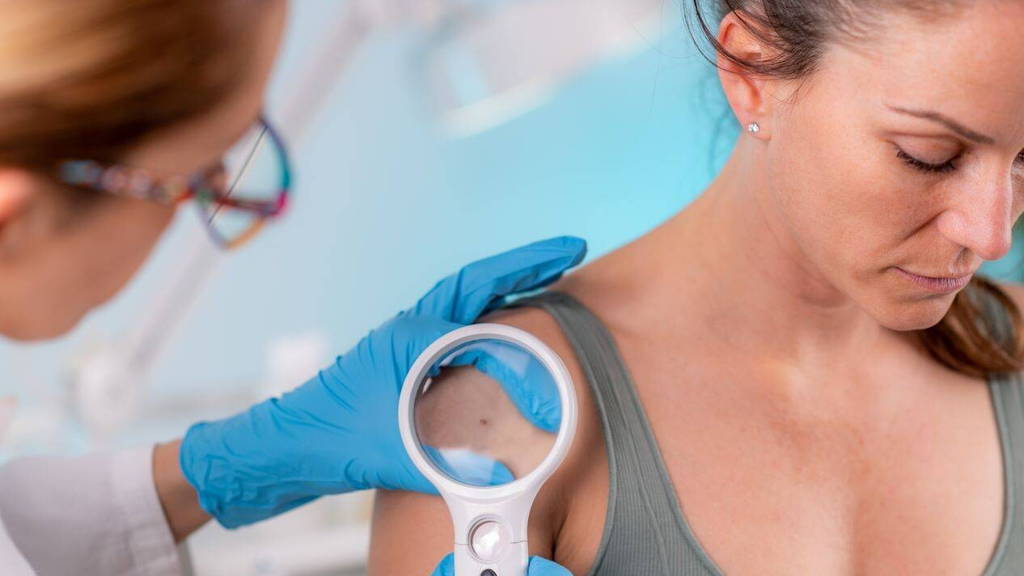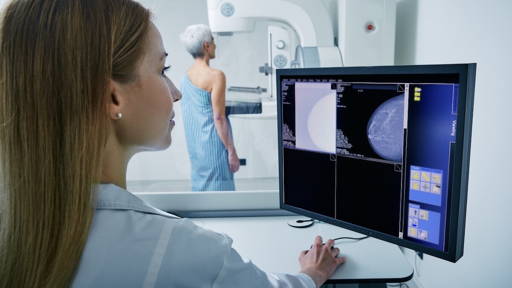When skin cancer is detected early, the prognosis for the patient is often good. Therefore, early detection of skin cancer (melanoma) is important. Recent research shows that a new full-body scanner linked to an AI diagnostic platform can help in the early detection of melanoma. In just six minutes, it automatically scans a patient's entire body and provides a risk assessment for any abnormal change found in the skin.
Twenty partners collaborated in the development of the diagnostic system and the product development is an EU iToBoS project. To ensure that the AI works reliably and safely, researchers at the Fraunhofer Institute for Telecommunications, Heinrich-Hertz-Institut, HHI, integrate so-called explainable AI (XAI) technologies into the AI tools used. The EU is funding the project with 12.1 million euros.
Growing number of melanoma cases
Melanoma accounts for sixty percent of all malignant skin tumors. The number of cases of this type of skin cancer has increased dramatically in recent years. Added to that, melanoma is often detected too late because the diagnostic methods for early detection are often cumbersome and expensive. In a whole-body skin scan, dermatologists examine each pigmented skin lesion individually, looking for typical signs of melanoma. This is a time-consuming and error-prone form of health monitoring. The EU project Intelligent Total Body Scanner for Early Detection of Melanoma (iToBoS) aims to speed up and improve the existing examination method through AI.
In addition, the project has other goals. For example, in addition to early detection of cancer, it should also help automate the history of patients. Furthermore, by using AI, the number of biopsies to be taken from patients can be reduced. This relieves both the patient and the healthcare provider. The iToBoS scanner is the centerpiece of the cloud-based AI diagnostic platform also developed during this project. It combines health data from various sources.
Mimicking human eye
The scanner's high-resolution cameras are equipped with liquid lenses that mimic the structure of the human eye. Based on two immiscible liquids with different refractive index, they produce images of very good quality. For personalized diagnosis, machine learning is used to integrate the scans along with all available patient data into the AI diagnostic platform with the cognitive AI assistant tool. That patient data includes demographic data and UV damage and risk group information.
The high speed at which the scanner operates makes it possible to examine many patients in a short period of time. The scans can also often be repeated over a longer period of time. In this way, the scans can be compared with each other and the development of moles and possible other skin changes can be monitored. Multiple specialized AI algorithms combined in the AI assistant are responsible for identifying and tracking birthmarks over time.
Holistic AI model
The ultimate goal of the project is to develop a holistic AI model that uses different data sets to examine patients from different perspectives. The meta-datasets collected as part of the project in Queensland, Australia, and in Barcelona help in this effort because they extend the data pool to other populations from around the world. The long-term intention is that the full-body scanner can also be used to diagnose other skin diseases.
In the course of 2026, the Catharina Hospital and Maastricht UMC+, as the first two hospitals in the Netherlands, will also start using a new scanner. With that scanner, a suspicious spot on the skin can be determined within half a minute whether or not it is skin cancer.









